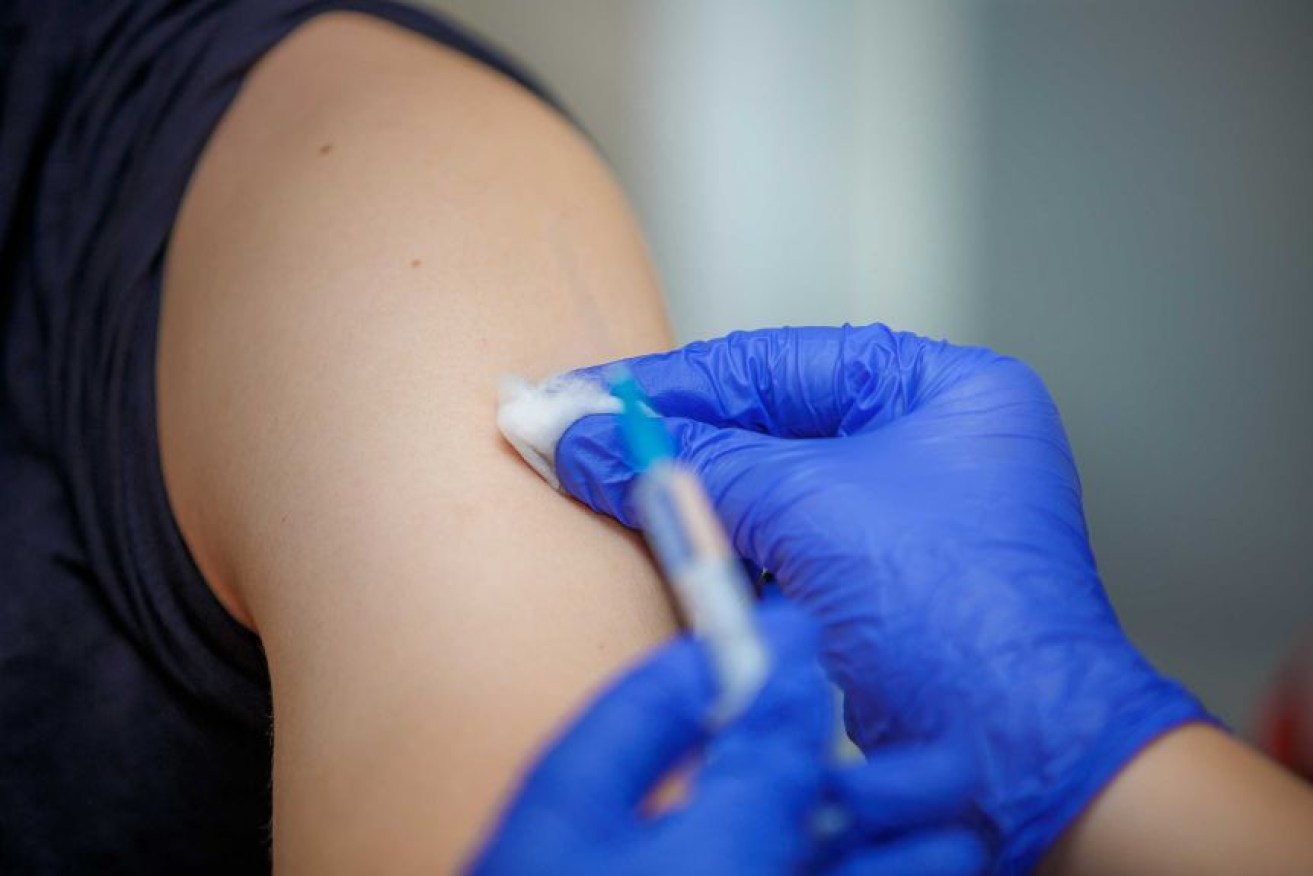Flu deaths prevented as cases plummet amid coronavirus lockdowns, AMA says

There has been a significant increase in early flu vaccinations this year. Photo: Getty
Australia’s coronavirus lockdown measures have been widely credited with preventing the catastrophic infection rates and death tolls seen in other parts of the world.
But could they be having an even greater impact than we realise?
Health authorities say social distancing, travel bans and other guidelines have also led to a dramatic drop in seasonal influenza cases and deaths.
In the first five months of 2019 — a particularly severe flu season — the national total of laboratory-confirmed influenza cases reached 74,176.
But Immunisation Coalition data shows the number of cases in 2020 has plummeted since coronavirus lockdowns were introduced — from 20,032 cases in the first three months, to 504 in April and May.
Australian Medical Association (AMA) SA president Dr Chris Moy said the number of flu deaths prevented since the coronavirus pandemic began was probably “quite significant”.
“It may have, up to this point, saved more people than it’s actually killed, and certainly the response to COVID has actually saved a lot of people,” he said.
“The only proviso to that is that it is possible that we may have actually delayed an [influenza] outbreak.
“But I think [the number] will still be less, because we have a far more highly immunised population this year than we have had in previous years.”
Last year, there were over 900 influenza-linked deaths in Australia.
But until the end of last month, federal authorities had only been alerted to 36 “laboratory-confirmed influenza-associated deaths” in 2020, according to the Australian Influenza Surveillance Report.

Last year, Australia experienced its worst flu season on record. Photo: Pixabay
Immunisation Coalition CEO Kim Sampson said that, in terms of overall case numbers, 2020 was tracking similarly to last year until the coronavirus pandemic hit.
“We were preparing ourselves for a very bad flu season once again,” he said.
“Around three quarters of the way through March there was an announcement … to introduce restrictions on our movement and lockdown was introduced.
“We saw immediately a drop of in flu numbers.”
Mr Sampson said it quickly became clear that there was a link, because of the impact changes in behaviour brought about by COVID-19 have had on the spread of other illnesses.
“We checked other respiratory diseases too, such as RSV [respiratory syncytial virus], and that had also significantly reduced, as had rhinovirus,” he said.
‘Record’ vaccination uptake
The drop in influenza cases had previously been predicted, but the magnitude of the decline is “a phenomenon … that we’ve never seen before”, Dr Moy said.
“The mechanism of spread of influenza is essentially the same as that of COVID, and that is droplet spread,” he said.
“By applying the physical distancing, the restrictions … [have] closed down the transmission of influenza at the same time.”

Dr Chris Moy described the drop in influenza cases as “quite a phenomenon”. Photo: ABC News/Claire Campbell
Dr Moy said a high vaccination uptake this year was potentially another factor in keeping flu rates low, and had contributed to a “level of herd immunity”.
“We’ve had record numbers of vaccinations at an early stage, which has partly been due to the urgings of the providers and health authorities like ourselves,” he said.
“We really did not want, early on, outbreaks of COVID and influenza happening at the same time.”
While it is difficult to know exactly how many vaccines have been administered this year, the Australian Immunisation Register puts the number at more than 7.3 million.
At the end of last month, Federal Health Minister Greg Hunt announced a record 18 million vaccinations would be made available during the 2020 season.
But Dr Moy warned against complacency, saying high vaccination rates early on could present problems down the track, and that a small number of people should consider speaking with their doctor about a booster shot.
“It may be that the peak effect of the vaccinations may actually occur a little bit too early,” he said.
“If influenza does get going at some stage, the effectiveness of the influenza vaccine for some individuals may start to peter out later in the year.”
What could it mean going forward?
Dr Moy said most people have never experienced a pandemic, and compared aspects of the coronavirus outbreak to the days of polio and smallpox.
“There was a greater emphasis on general hygiene, for example, and care about the possibility of transmitting viruses and infectious diseases to others,” he said.
“I think that’s something that maybe in the community we’ve kind of forgotten about.”

Dr Moy says the pandemic has highlighted the importance of good hand hygiene. Photo: Unsplash/Rawpixel
He said he hopes hand hygiene and other health precautions last long after the pandemic has passed.
“Making sure you wash your hands, and don’t leave influenza on a surface that could be picked up and caught by somebody else is pretty simple — but it’s the sort of thing maybe we’ve forgotten and our grandparents did better than we did,” he said.
Mr Sampson also hopes the shift in attitude sticks.
“I think there is a large percentage of the population who are observing exactly what’s happened,” he said.
“I’m convinced that a large proportion of the population will have their behaviour changed in a permanent kind of way.”
-ABC








